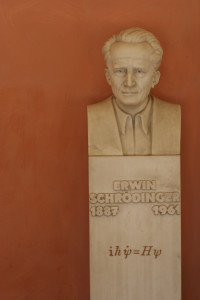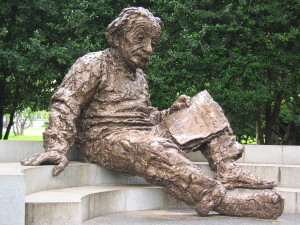Posted by Roberta Grimes • April 22, 2015 • 2 Comments
Afterlife Research, Death, Understanding Reality
Tech billionaire Peter Thiel warns us that science is in a period of what he calls the  “Great Stagnation.” He frets that we are stuck in what he sees as a “culture of conformity” because “innovation depends on individuals who are willing to pursue unconventional, or even controversial, ideas.”
“Great Stagnation.” He frets that we are stuck in what he sees as a “culture of conformity” because “innovation depends on individuals who are willing to pursue unconventional, or even controversial, ideas.”
Mr. Thiel, you are exactly right. The Great Stagnation began a century ago, when the scientific community refused to investigate a flood of good afterlife communications that amounted to something close to proof that people easily survive their deaths. Instead of having a look, scientific gatekeepers worried that science might inadvertently find God, so they adopted materialism as what was then called science’s “fundamental dogma.” Materialism has since hardened into a requirement for all mainstream scientific inquiry. Of course, anything that is based in a dogma has become a belief-system and is not a genuine science any longer. All of this results in what you have observed. Physicists have been floundering in the weeds for a century.
Oh, but they still put up a brave front. They have the money to build particle colliders that enable them to earn a living while they discover nothing very useful. The recent run of the Great Hadron Collider failed to find some thirty particles required for important theories of physics that have been in place for decades. And yes, the last run of the GHC did discover what is believed to be the boson that gives subatomic particles their mass; but what physicists still fail to consider is a more important question that goes to the very heart of physics. Why is a Higgs Boson necessary in the first place?
This problem of restricted scientific inquiry has handicapped some brilliant careers. Ethan Siegel, in a terrific book review entitled Einstein, Schrodinger, and the Story You Never Heard: How “Faith” in the Universe Destroyed Two Brilliant Men of Genius, tells us how two of history’s greatest physicists were tripped up by their materialist prejudices reinforced by their need to keep themselves in conformity with the materialist party line. Siegel wonders, “(H)ow many of the ‘best’ theoretical ideas that lack evidence at the present – supersymmetry, extra dimensions, grand unification, string theory – will turn out to be completely wrong?” Since all these theories are attempts to make sense of a universe that is not material while remaining grounded in materialist dogma in order to keep careers alive, my suspicion is that all of these theories are wrong. But we won’t know that for sure until we can turn physics back into a genuine science.
The irony is that by now, research physicists understand that nothing is solid in the sense that Sir Isaac Newton understood the word “solid.” Max Planck is in the same scientific pantheon as Einstein, and as far back as 1944 he said, “There is no matter as such. All matter originates and exists only by virtue of a force which brings the particles of an atom to vibration and holds this most minute solar system of the atom together.” Of course, more recently it has become clear that those “particles” are actually vortices of energy. That is why physicists need the Higgs Boson. Mass has to come from somewhere.
So physicists get what is going on, but for public consumption they must hold to the  party line of materialism or risk their careers. This zone of silence has led to a massive and appalling level of ignorance in the mainstream culture about such essential matters as human nature and the nature of reality. Rather than understanding by now that these bodies that we briefly wear are about as important as your old Toyota – useful for awhile, but soon abandoned – many of the world’s most sincere people see themselves as waging a desperate fight against their own extinction. Once the car breaks down, they’ll blink out like a light!
party line of materialism or risk their careers. This zone of silence has led to a massive and appalling level of ignorance in the mainstream culture about such essential matters as human nature and the nature of reality. Rather than understanding by now that these bodies that we briefly wear are about as important as your old Toyota – useful for awhile, but soon abandoned – many of the world’s most sincere people see themselves as waging a desperate fight against their own extinction. Once the car breaks down, they’ll blink out like a light!
And among those fighting hardest to keep running what in his case is probably a Bentley is our wise and observant friend, Peter Thiel. “(T)he idea he’s most passionate about is using technology to extend human life far beyond what it is now,” so he is funding scientists to look for better ways to tinker under the hood.
What is saddest about all this waste of money and brilliance is that research is now ongoing in the very areas of inquiry that would most interest Peter Thiel. It is being conducted by physicists of stature, and the only thing that it lacks is funding to hasten the day when everyone on earth will know that human minds are eternal. There is no area of inquiry more certain to transform all of human life for the better than the research in electronic communication across dimensions now being conducted by Thomas Edison, Albert Einstein, Niels Bohr, and other household names who unfortunately have forgotten that here on earth we need money. The gizmos they keep proposing to their earthly lab assistants tend to be unbelievably expensive.
 Still, we will get there eventually. The teams of dead scientists working on this tell us that even without much funding they expect to have a workable “soul phone” in place within the next few years. Of course, with a few million dollars applied to this most important area of scientific research in all of human history, success could happen sooner. So, how about it, Mr. Thiel? There is no better way to invest your wealth in “individuals who are willing to pursue unconventional, or even controversial, ideas” that are certain to transform the world!
Still, we will get there eventually. The teams of dead scientists working on this tell us that even without much funding they expect to have a workable “soul phone” in place within the next few years. Of course, with a few million dollars applied to this most important area of scientific research in all of human history, success could happen sooner. So, how about it, Mr. Thiel? There is no better way to invest your wealth in “individuals who are willing to pursue unconventional, or even controversial, ideas” that are certain to transform the world!
photo credit: Planck via photopin (license)
photo credit: hypermodern via photopin cc
photo credit: Dustpuppy72 via photopin cc
Roberta,
When you were mentioning gifted inventors, you left out the best inventor. Nikola Tesla was the most influential inventor there was and he died penniless. Thomas Edison wanted to transfer electricity with Direct Current. Tesla wanted to transfer electricity with Alternating Current. Tesla’s idea is what we went with because it works! This is just one example. Edison was a self promoter; Tesla gave his wonderful ideas away. I would think you would know that as smart as you are.
No indeed, Gary! I’m not an expert on everything, and in fact I know little about our friend Tesla beyond the fact that he is one of the leading researchers now putting together the North American Communication Station. He is about to give us something far more important to the future of humankind than mundane ol’ electricity! Thanks to him and to those working with him, you soon will be able to talk with people you used to think were dead using a simple app, with no medium involved. He is a very bright man, indeed!